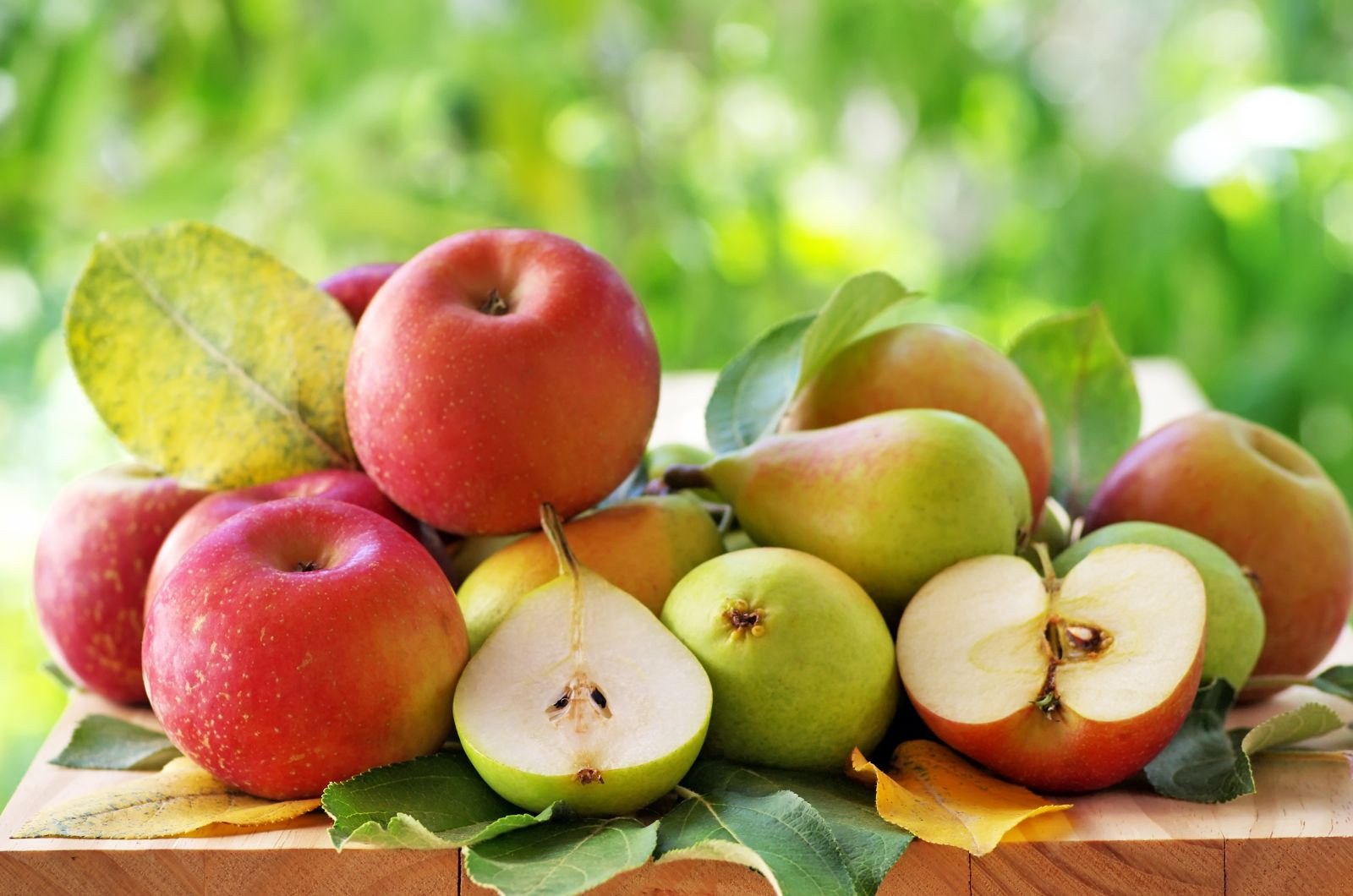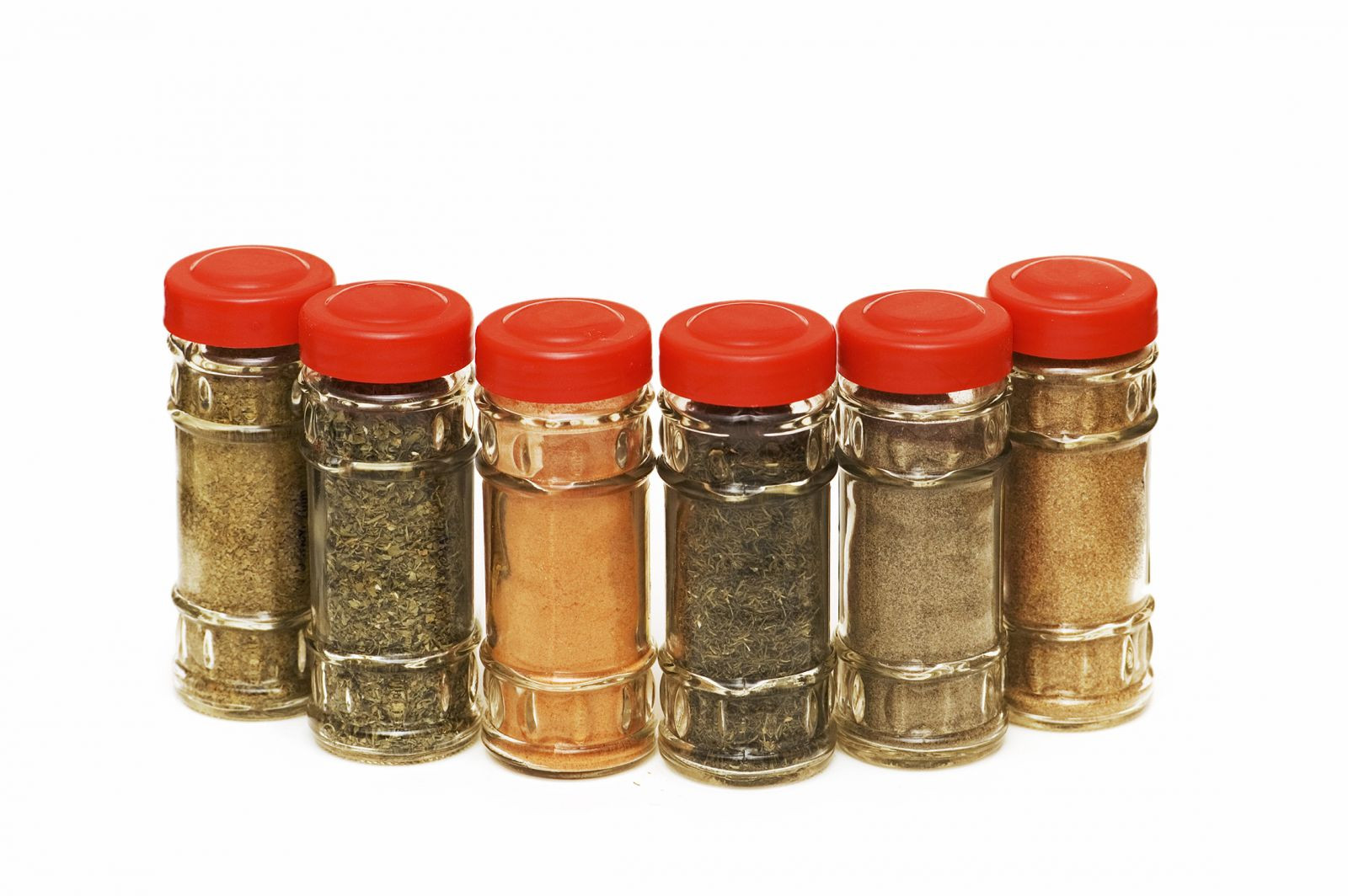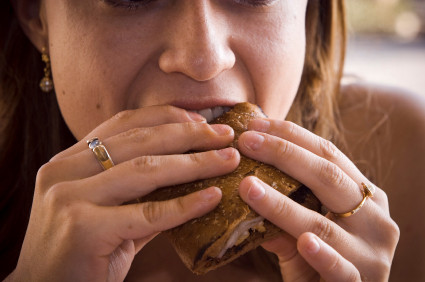
Trying to lose weight? Be careful not to lose muscle

Is your skin problem actually an autoimmune condition?

People with diabetes face higher risk of hearing loss

Antibiotic-free fixes for recurrent UTIs

Musculoskeletal syndrome of menopause: When menopause makes you ache all over

When can older women stop getting mammograms?

To lose weight, especially harmful belly fat, combine diet and exercise

Can men hold off on treating recurring prostate cancer?

The 7 types of rest and why we need them all

What are the early warning signs of cervical cancer?
Nutrition Archive
Articles
Eating more fruit may help lower blood pressure
The longstanding "More Matters" campaign urges Americans to eat more fruits and vegetables (see www.fruitsandveggiesmorematters.org). Evidence to support this healthy habit keeps piling up, with the latest from a study that pooled dietary data from three large, long-term studies that followed more than 187,000 people for an average of over 20 years.
The researchers found that people who ate more whole fruits—especially apples, pears, grapes, and raisins—were less likely to develop high blood pressure than those who rarely ate those foods. As for vegetables, broccoli and carrots appeared to be the best choices for staving off high blood pressure. Fruits and vegetables provide minerals such as potassium and substances called flavonoids, both of which are linked to lower blood pressure. The study was published online in the Dec. 7, 2015, issue of Hypertension.
Rethink your food and drink: Choices that may affect diabetes risk
If someone you know has been diagnosed with type 2 diabetes, you might be wondering about how you can lower your own risk. Fortunately, multiple studies have shown that many of the same healthy eating choices that can help your friend or loved one control their diabetes can also help you prevent it. The exact relationship between eating specific types of foods and the risk of developing diabetes remains somewhat controversial. But the study findings are consistent with what experts consider to be healthy eating habits for most adults.
So, if you're interested in lowering your risk of type 2 diabetes, it can't hurt to try getting more of the foods and nutrients that can lower your risk — and to avoid those that can raise it.
Can everyday spices make you healthier?
Turmeric, coriander, and cumin may boost your health and breathe new life into tired dishes.
The health benefits of foods such as berries, broccoli, and salmon are well known. But your kitchen's spice rack may also hold some secret weapons against conditions such as inflammation, heart disease, cancer, and more. "Spices are underused, but it would be very easy to take advantage of them and improve health," says Dr. Lipi Roy, an internal medicine physician at Harvard-affiliated Massachusetts General Hospital.
There are few large randomized trials that demonstrate spices' health effects. But many studies in animals suggest that several spices offer benefits. So instead of flavoring your food with salt and butter, which can contribute to high blood pressure and heart disease, consider using the following spices.
Ask the doctors: How much fruit can I eat and stay within the sugar guidelines?
Ask the doctors
Q: I just read that we shouldn't be getting more than 10% of our calories from sugar. Should I cut back on fruit?
A: While it's a good idea to limit sugars from processed foods, you can worry less about eating too much fruit. In fact, one small study found no ill effects in people who ate 20 servings of fruit a day for 12 to 24 weeks.
8 steps to mindful eating
This ancient practice can transform the way you think about food and set the stage for a lifetime of healthy eating.
Like most of us, you've probably eaten something in the past few hours. And, like many of us, you may not be able to recall everything you ate, let alone the sensation of eating it. According to a 2011 report from the U.S. Department of Agriculture, the average American spends two-and-a-half hours a day eating, but more than half the time, we're doing something else, too. Because we're working, driving, reading, watching television, or fiddling with an electronic device, we're not fully aware of what we're eating. And this mindless eating—a lack of awareness of the food we're consuming—may be contributing to the national obesity epidemic and other health issues, says Dr. Lilian Cheung, a nutritionist and lecturer at Harvard T.H. Chan School of Public Health.
Walnuts can lower cholesterol
Research we're watching
Walnuts are loaded with folate, vitamin E, and lots of good fats. Although they are also high in calories, they don't seem to contribute to weight gain. Researchers at Yale University Prevention Research Center wanted to determine if eating walnuts daily could help people at risk for diabetes control their cholesterol and blood sugar.
The researchers randomly assigned 112 people ages 25 to 75—70% of whom were women—to two groups. People in both groups were given 2 ounces of walnuts to eat daily. They were told to eat whatever else they wanted but to keep a record of what they ate. One group was also told to eat 366 fewer calories from other food to compensate for the calories added by the walnuts. Both groups ate the walnuts for six months, and their customary diet without walnuts for another six months.
Sugar substitutes: Just sweet nothings?
Image: Thinkstock
A high-sugar diet may raise heart disease risk. But no-calorie sweeteners aren't ideal alternatives.
If you have a sweet tooth, your heart may be paying the price. Diets high in added sugars have been linked to a host of health woes, including obesity, high blood pressure, high cholesterol, and even a higher risk of dying of heart disease.
Belly fat boosts risk of dying of heart disease
Research we're watching
Even if you're not overweight, having a large belly raises your risk of dying of heart disease, a new study suggests.
To explore factors linked to early death, researchers relied on body measurements and other health information gleaned from more than 15,000 adults who took part in a national health survey. The average follow-up period was 14 years.
Better nutrition when cooking for one
You can still eat healthy foods without making a big meal each night.
Image: Thinkstock
When you live alone, coping without a companion at meal times is more than just lonely; it's also a risk for malnutrition. "People don't make an effort when eating is no longer a social experience. There's no joy left in preparing food, because they don't view it as something valuable to do for themselves," says Melanie Pearsall, a registered dietitian with Harvard-affiliated Massachusetts General Hospital.
Challenges lead to health risks
Loneliness is just part of the nutrition challenge when you live alone. Some people may also experience
Harvard study: Moderate coffee drinking associated with longevity
Image: Thinkstock
News Briefs
Here's something to think about if you drink a few cups of coffee per day: a Harvard study published online Nov. 16, 2015, by Circulation found that moderate coffee drinking is associated with a lower risk of an early death. Researchers evaluated questionnaires answered by people in three large studies (a total of more than 208,000 men and women), over a period of 30 years. The investigators observed that, compared with people who don't drink coffee, those who drank three to five cups of caffeinated or decaffeinated coffee per day had a lower risk of death from type 2 diabetes, cardiovascular disease, neurological diseases such as Parkinson's disease, and suicide. "It could be that certain compounds in coffee, such as chlorogenic acid, may help reduce insulin resistance and inflammation, which are associated with many diseases, including type 2 diabetes and cardiovascular disease," says Dr. Ming Ding, the study's first author and a doctoral student at the Harvard T.H. Chan School of Public Health. But the study doesn't prove that coffee was responsible for the lower risk of early death. "If you drink a moderate amount of coffee, it is fine to keep your habit. There is not enough evidence that you should drink more coffee for the sake of longer life expectancy," says Dr. Ding.

Trying to lose weight? Be careful not to lose muscle

Is your skin problem actually an autoimmune condition?

People with diabetes face higher risk of hearing loss

Antibiotic-free fixes for recurrent UTIs

Musculoskeletal syndrome of menopause: When menopause makes you ache all over

When can older women stop getting mammograms?

To lose weight, especially harmful belly fat, combine diet and exercise

Can men hold off on treating recurring prostate cancer?

The 7 types of rest and why we need them all

What are the early warning signs of cervical cancer?
Free Healthbeat Signup
Get the latest in health news delivered to your inbox!
Sign Up











